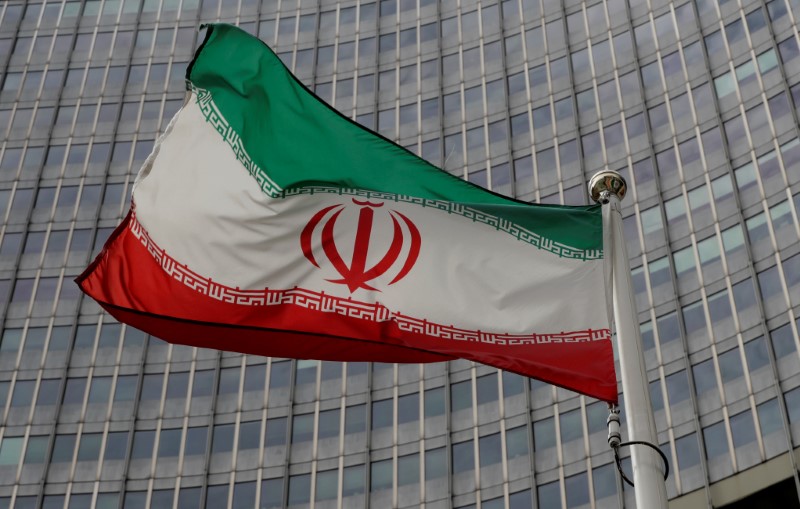By Daphne Psaledakis and Arshad Mohammed
WASHINGTON (Reuters) - The United States blacklisted five Iran- and Iraq-based companies and 15 individuals on Thursday for supporting terrorist groups, its third round of sanctions on Iranian targets in the last two weeks even as Tehran battles the coronavirus outbreak.
In a statement, the U.S. Treasury Department accused those targeted of supporting the Islamic Revolutionary Guards Corps (IRGC) and its Quds Force elite foreign paramilitary and espionage arm and of transferring lethal aid to Iran-backed militias in Iraq such as Kataib Hezbollah and Asaib Ahl al-Haq, all of which Washington deems foreign terrorist organizations.
The Pentagon blamed Kataib Hezbollah for a March 11 rocket attack that killed one British and two U.S. personnel in Iraq.
U.S. officials say they plan to keep sanctioning Iran to try to force it to curb its nuclear, missile and regional activities despite the coronavirus outbreak, which has killed 2,234 people in Iran.
Treasury accused those designated of "malign activities" including selling Iranian oil to Syria, smuggling arms to Iraq and Yemen and backing Iraqi militias that attack U.S. forces.
The sanctions freeze any of their U.S.-held assets and generally bar Americans from dealing with them.
The five targeted companies are Mada’in Novin Traders and Reconstruction Organization of the Holy Shrines in Iraq, both of which are based in Iran and Iraq; Bahjat al Kawthar Company for Construction and Trading Ltd, also known as Kosar Company, and Al Khamael Maritime Services, which are both based in Iraq; and Middle East Saman Chemical Company, which is based in Iran.
The action also blacklists 15 individuals who are associated with the companies or officials of the Quds Force and Kataib Hezbollah.
Iranian Foreign Minister Mohammad Javad Zarif urged the boycott of U.S. sanctions, though it was unclear if he was responding to the latest actions. "Does the US want a 'forever pandemic'? Moral imperative to stop observing the bully's sanctions," he tweeted.
Humanitarian supplies are exempt from sanctions Washington reimposed on Tehran after President Donald Trump abandoned Iran's 2015 multilateral deal to limit its nuclear program.
However, broader U.S. sanctions deter many firms from humanitarian trade with Iran.
The United States and Switzerland this year finalized a Swiss channel to get humanitarian goods to Iran. As of March 19, one transaction had been processed.

Separately, Washington renewed a sanctions waiver letting Iraq import electricity from Iran but vowed to blacklist anyone who used it to help terrorist groups.
(Additional Reporting by Lisa Lambert and Humeyra Pamuk in Washington and Parisa Hafezi in Dubai; Editing by Franklin Paul, Howard Goller and Cynthia Osterman)